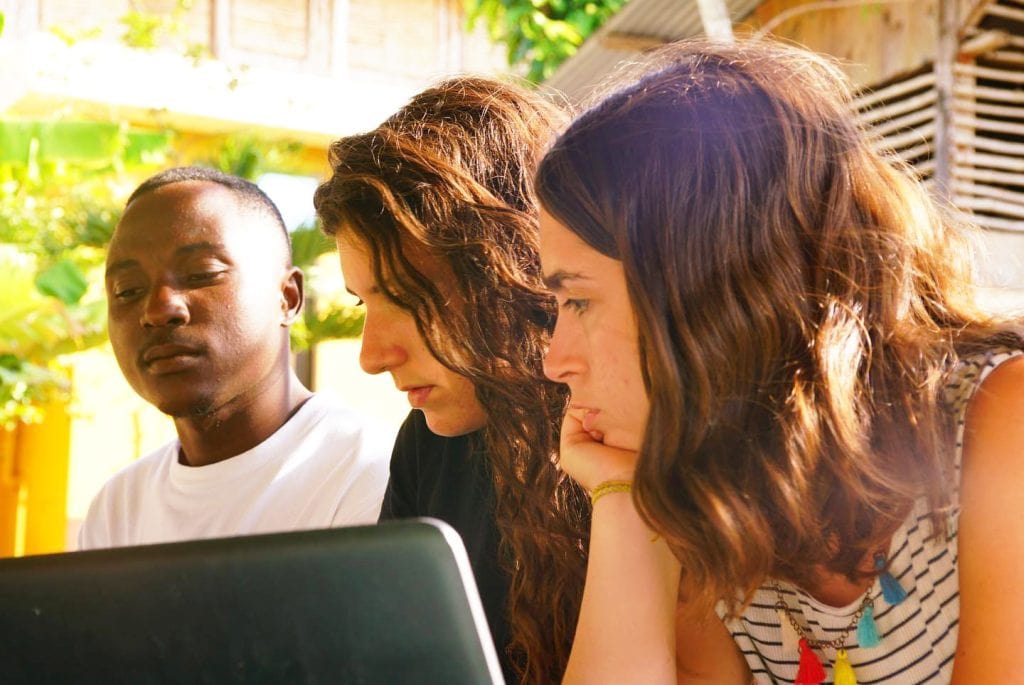By Marian Joseph – Art in Tanzania internship
The COVID-19 pandemic has thrust the world into uncharted territory, straining every sector of the economy. The financial industry, like many others, has been facing several challenges in finding effective ways to serve its customers during these times. This post examines closely how Kenya’s financial sector responded to the COVID-19 pandemic. A report by Bowmans (2020) tracked the government’s response to the gradual outbreak of COVID-19.
The following responses were provided by various branches of government, regulators, and governmental agencies.
1. Loan Availability.
On 18 March 2020, the Central Bank of Kenya (CBK) announced emergency measures that were agreed upon in consensus with commercial banks, applicable to borrowers whose loan repayments were up to date as of 2 March 2020.

· Banks to provide relief to borrowers on their loans based on their circumstances arising from the pandemic.
· To provide relief on personal loans, banks will review requests from borrowers for an extension of their loan for up to one year, and borrowers should contact their respective banks.
· medium-sized enterprises (SMEs) and corporate borrowers to contact their banks to assess and restructure their loans based on their respective circumstances arising from the pandemic.
· Banks to meet all the costs related to extending and restructuring loans.
· To facilitate increased use of mobile digital platforms, banks waive all charges for balance inquiry. Additionally, the CBK had previously announced that all charges for transfers between mobile money wallets and bank accounts would be eliminated. (Bowmans, 2020)
2. Credit Availability
On 24 March 2020, the Central Bank of Kenya announced additional measures to facilitate banks’ lending to borrowers adversely affected by the COVID-19 pandemic.
· The lowering of the Central Bank Rate (CBR) to 7.25 per cent.
· The lowering of the Cash Reserve Ratio (CRR) to 4.25 per cent to provide additional liquidity of KES 35.2 billion to commercial banks. CBK will avail this liquidity to banks based on their demonstrated requirement to directly support borrowers who are distressed as a result of COVID-19.
· To provide flexibility on liquidity management facilities provided to banks by CBK, the maximum tenor of Repurchase Agreements (REPOs) was extended from 28 to 91 days.
On 25 March 2020, the President announced individual and business relief measures to be undertaken by the government:
· Reduction of Personal Income Tax top rate (PAYE) from 30% to 25% of the gross amount.
· 100 % Tax Relief for persons earning up to KES 24,000 monthly.
· Reduction of the Resident Corporate Income Tax rate from 30% to 25% of profits.
· Reduction of the Turnover Tax rate for SMEs from 3% to 1% of the gross revenue.
· Immediate reduction of VAT rate from 16% to 14%.
· Temporary Suspension of all listing for all persons, including companies whose loan account fall overdue or is in arrears, by the Credit Reference Bureau (CRB) – effective 1 April 2020.
· Ministries and Departments to cause the payment of at least KES 13 billion of the verified pending Bills within three weeks from the announcement.
· Appropriation of KES 1 billion from the Universal Health Coverage towards the recruitment of additional health workers to support the management of the spread of COVID-19.
· KRA to expedite payment of VAT Refunds by allocating an additional KES 10 billion within 3 weeks or in the alternative, to allow for offsetting of withholding VAT.

· Appropriation of KES 10 billion to the elderly, orphans, and other vulnerable members of our society through cash transfers by the Ministry of Labour and Social Protection to cushion them from the adverse economic effects of the COVID-19 pandemic.
· The government to set up a fund to which Public and Private sector players will contribute to support Government efforts. (Bowmans 2020)
REFERENCES
Bowmans the value of Knowing (November 2020). COVID-19: TRACKING GOVERNMENT RESPONSE IN KENYA





